Thibault Fevry
BLOOM: A 176B-Parameter Open-Access Multilingual Language Model
Nov 09, 2022Abstract:Large language models (LLMs) have been shown to be able to perform new tasks based on a few demonstrations or natural language instructions. While these capabilities have led to widespread adoption, most LLMs are developed by resource-rich organizations and are frequently kept from the public. As a step towards democratizing this powerful technology, we present BLOOM, a 176B-parameter open-access language model designed and built thanks to a collaboration of hundreds of researchers. BLOOM is a decoder-only Transformer language model that was trained on the ROOTS corpus, a dataset comprising hundreds of sources in 46 natural and 13 programming languages (59 in total). We find that BLOOM achieves competitive performance on a wide variety of benchmarks, with stronger results after undergoing multitask prompted finetuning. To facilitate future research and applications using LLMs, we publicly release our models and code under the Responsible AI License.
PromptSource: An Integrated Development Environment and Repository for Natural Language Prompts
Feb 02, 2022
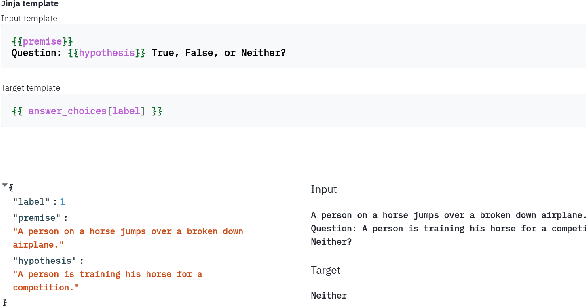
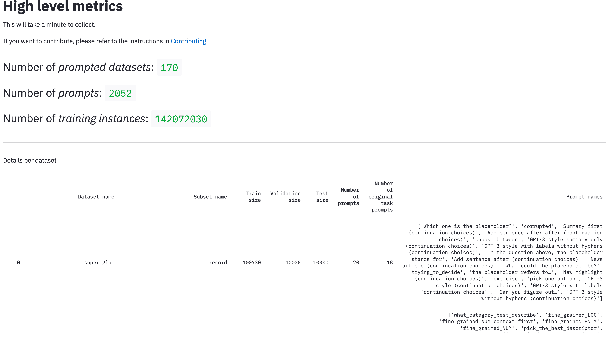
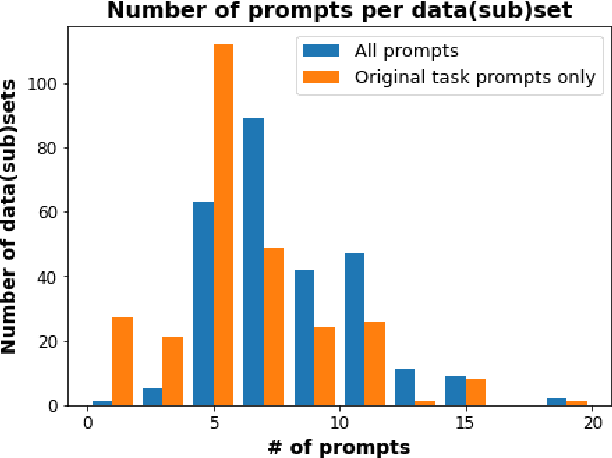
Abstract:PromptSource is a system for creating, sharing, and using natural language prompts. Prompts are functions that map an example from a dataset to a natural language input and target output. Using prompts to train and query language models is an emerging area in NLP that requires new tools that let users develop and refine these prompts collaboratively. PromptSource addresses the emergent challenges in this new setting with (1) a templating language for defining data-linked prompts, (2) an interface that lets users quickly iterate on prompt development by observing outputs of their prompts on many examples, and (3) a community-driven set of guidelines for contributing new prompts to a common pool. Over 2,000 prompts for roughly 170 datasets are already available in PromptSource. PromptSource is available at https://github.com/bigscience-workshop/promptsource.
Multitask Prompted Training Enables Zero-Shot Task Generalization
Oct 15, 2021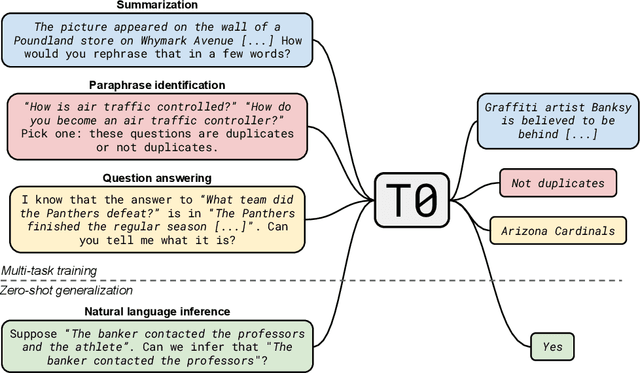

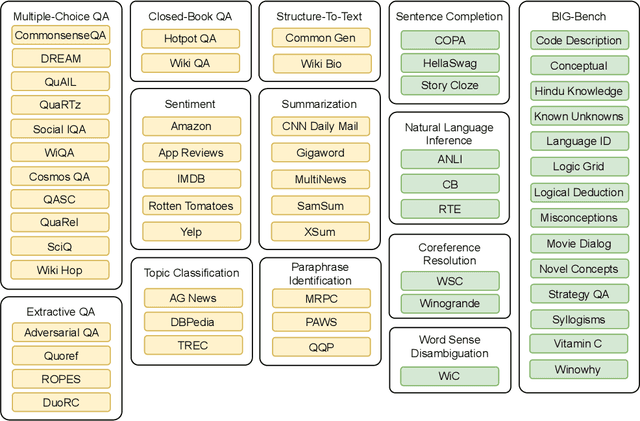

Abstract:Large language models have recently been shown to attain reasonable zero-shot generalization on a diverse set of tasks. It has been hypothesized that this is a consequence of implicit multitask learning in language model training. Can zero-shot generalization instead be directly induced by explicit multitask learning? To test this question at scale, we develop a system for easily mapping general natural language tasks into a human-readable prompted form. We convert a large set of supervised datasets, each with multiple prompts using varying natural language. These prompted datasets allow for benchmarking the ability of a model to perform completely unseen tasks specified in natural language. We fine-tune a pretrained encoder-decoder model on this multitask mixture covering a wide variety of tasks. The model attains strong zero-shot performance on several standard datasets, often outperforming models 16x its size. Further, our approach attains strong performance on a subset of tasks from the BIG-Bench benchmark, outperforming models 6x its size. All prompts and trained models are available at github.com/bigscience-workshop/promptsource/.
Do Transformer Modifications Transfer Across Implementations and Applications?
Feb 23, 2021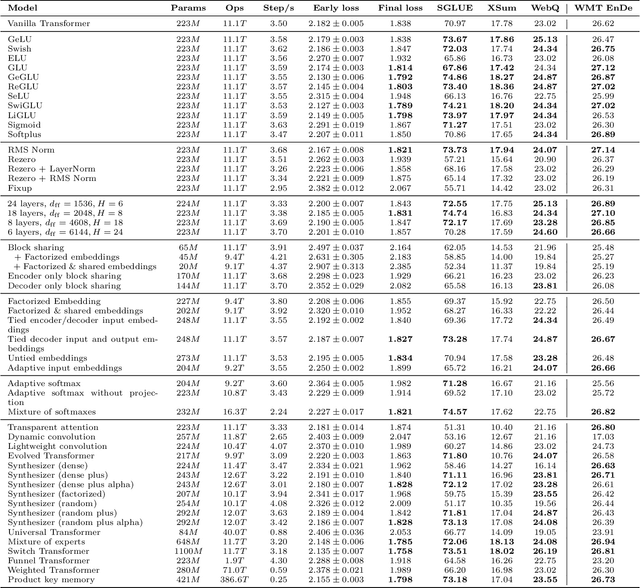

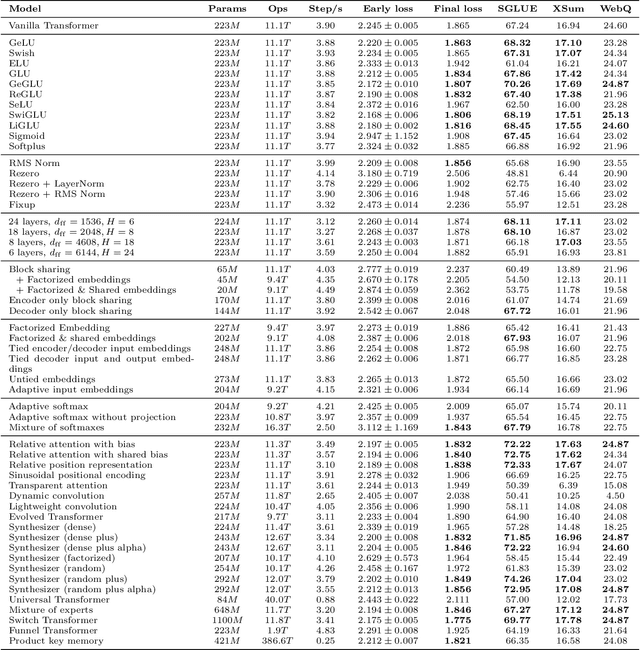
Abstract:The research community has proposed copious modifications to the Transformer architecture since it was introduced over three years ago, relatively few of which have seen widespread adoption. In this paper, we comprehensively evaluate many of these modifications in a shared experimental setting that covers most of the common uses of the Transformer in natural language processing. Surprisingly, we find that most modifications do not meaningfully improve performance. Furthermore, most of the Transformer variants we found beneficial were either developed in the same codebase that we used or are relatively minor changes. We conjecture that performance improvements may strongly depend on implementation details and correspondingly make some recommendations for improving the generality of experimental results.
 Add to Chrome
Add to Chrome Add to Firefox
Add to Firefox Add to Edge
Add to Edge